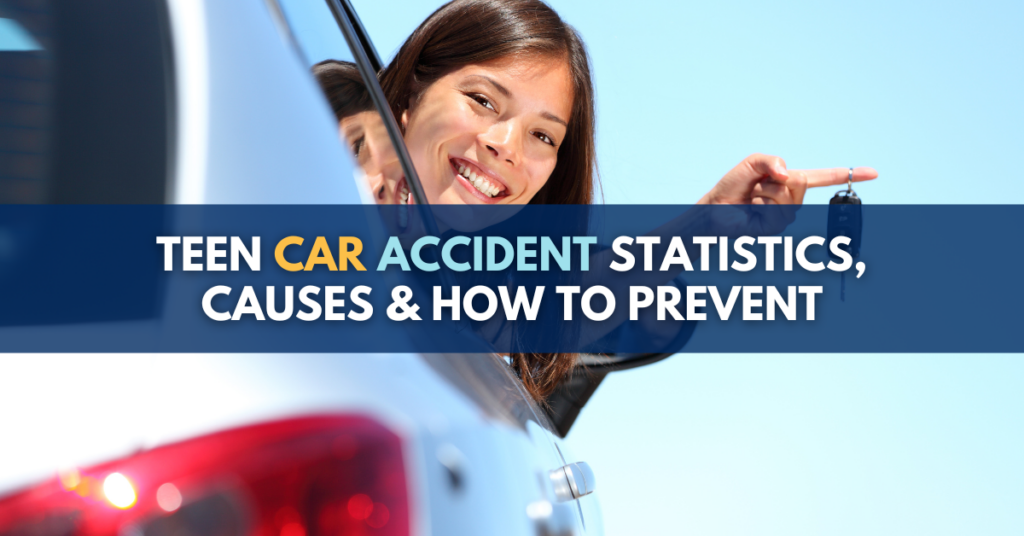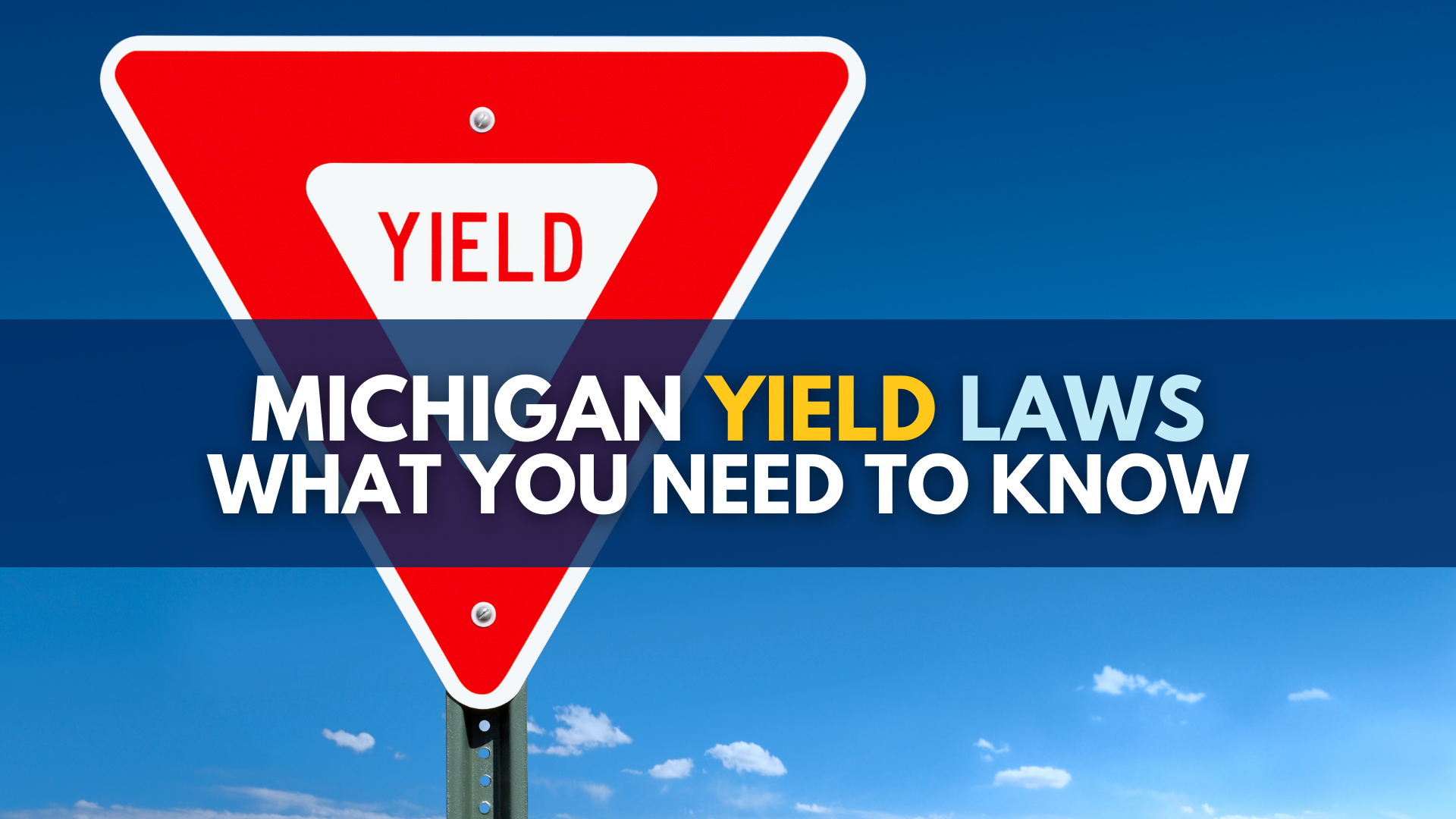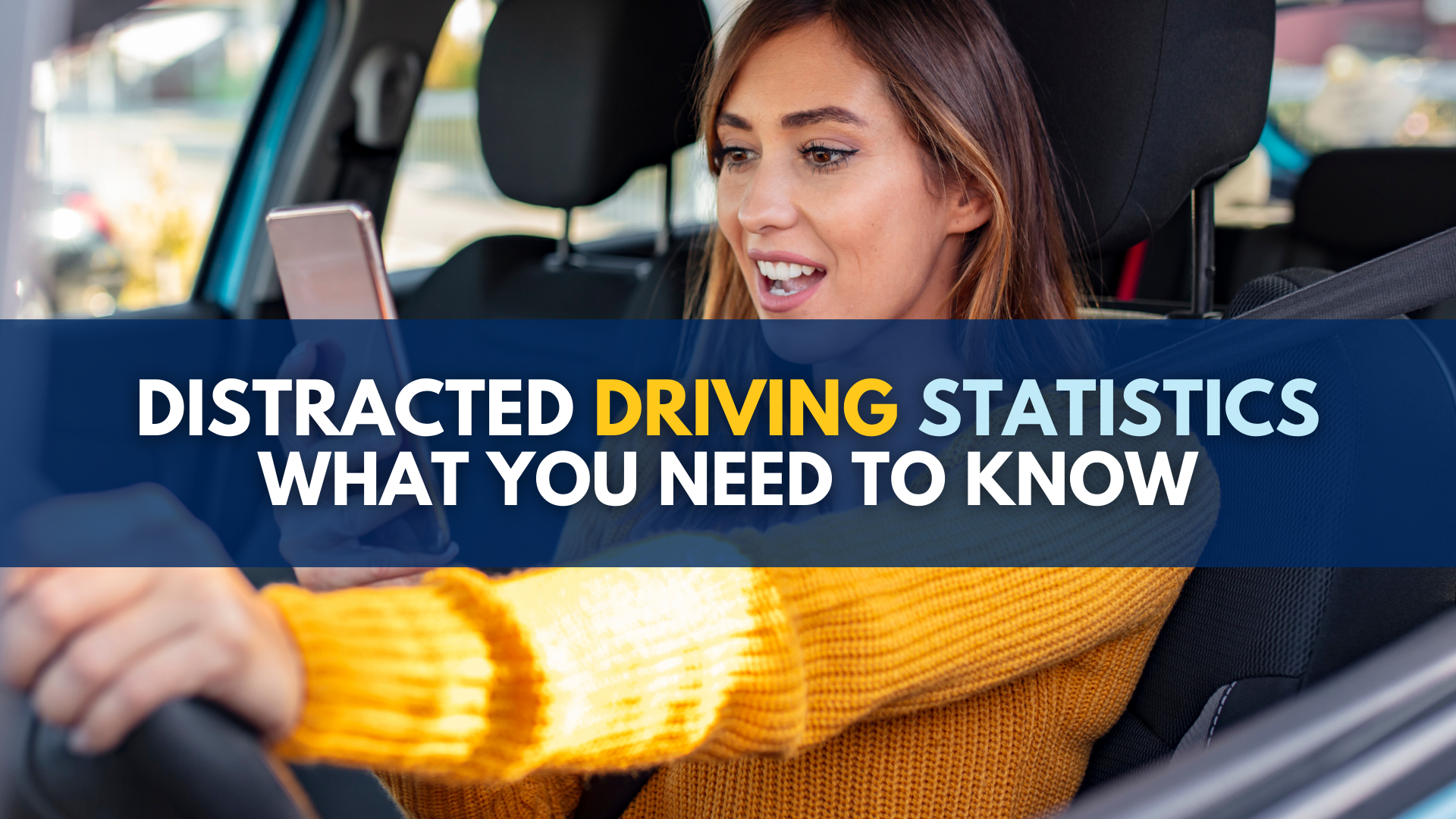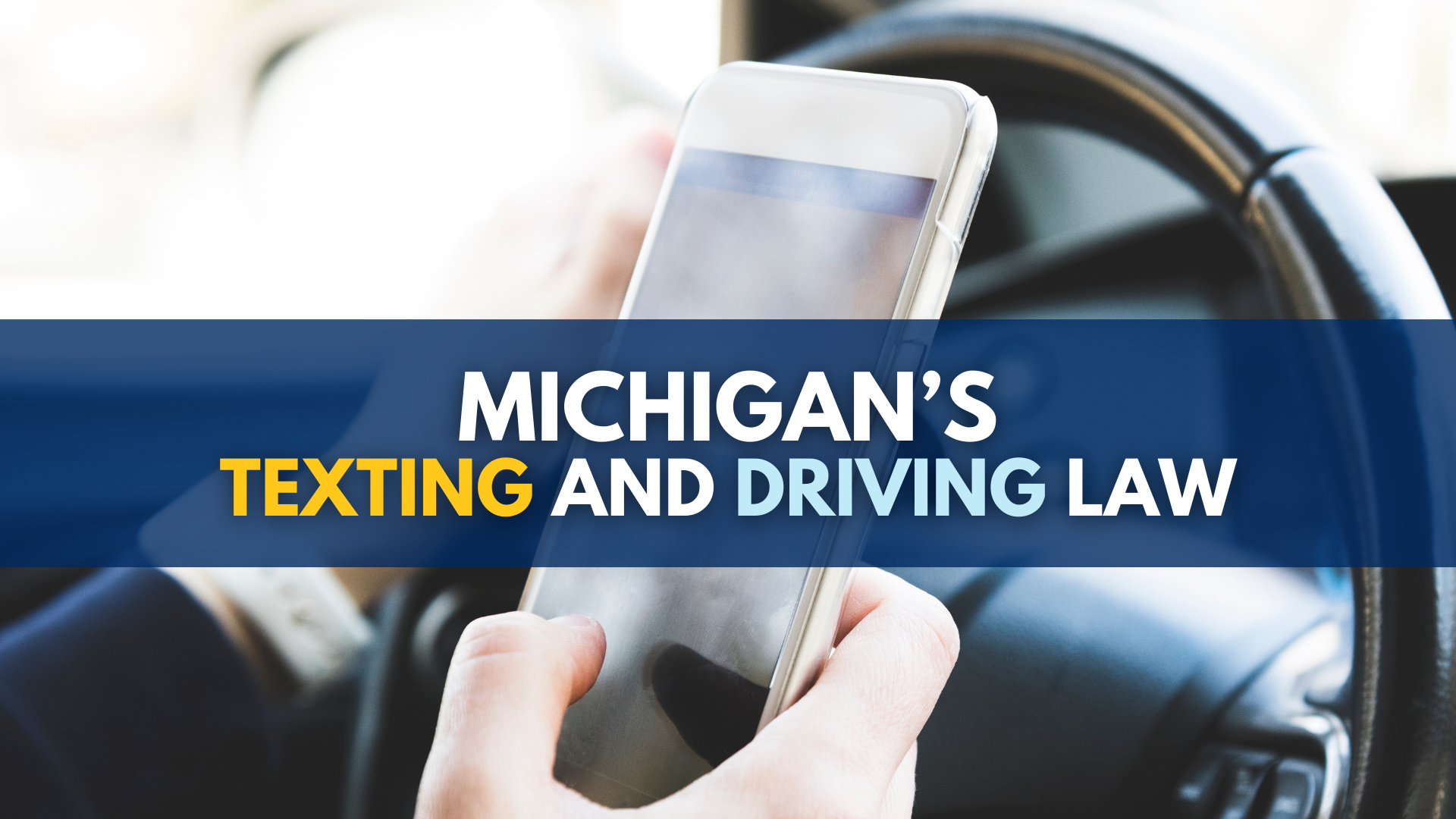
How many teens die from car accidents?
Eight young drivers die from teen car accidents everyday. Teen drivers are 3 times as likely to be involved in a car crash as older drivers. The main causes of teen car accidents are distracted driving, driver inexperience, speeding, alcohol, and nighttime driving. Parents play a key role in prevention.
It is wonderful to watch our children grow up. But as every parent knows, it’s not so wonderful to watch them as they start to drive.
As parents, we know intuitively that our kids are not yet great drivers. Part of the reason is that they’re kids (neuroscientists say it’s because the prefrontal cortex to their brain is still developing until they get into their twenties) and they aren’t always paying attention when they’re supposed to be and they’re not always going to do what we’ve taught them to do to stay safe.
Under normal circumstances, this can be frustrating. But it’s downright terrifying when we think of our young drivers out on the road where disaster can occur in an instant when a teen driver is texting or checking social media instead of watching the road.
There’s a reason that teen car accidents are the leading cause of death for this age group.
This blog post is about helping parents learn how to help their teen drivers stay safe and to prevent teen car accidents.
Teen car accident statistics
Here are the statistics:
- “Motor vehicle crashes are the leading cause of death for U.S. teens.” (CDC)
- 8 teen drivers were killed every day in car crashes in the U.S. in 2020. (CDC)
- Teen drivers aged 16–19 “have a fatal crash rate almost three times as high as drivers ages 20 and older per mile driven.” (CDC)
- There were 1,885 young drivers between the ages of 15-20 who died in traffic crashes in the U.S. in 2020. (NHTSA)
- 8.5% of “all drivers involved in fatal crashes” in the U.S. in 2020 2017 were young drivers between 15 to 20 years old. (NHTSA)
- There were 4,561 young drivers between the ages of 15-20 who were involved in fatal crashes in the U.S. in 2020. (NHTSA)
- There were 5,037 people killed in “crashes involving young drivers” in the U.S. in 2020. (NHTSA)
- “There were 296 people who died in crashes in 2021 that involved distracted teen drivers 15 to 19.” (NHTSA)
- “There were 271 teen drivers 15 to 19 involved in fatal crashes in 2021 who were distracted.” (NHTSA)
What percentage of car accidents are caused by teenage drivers?
We do not know exactly what proportion of car accidents are caused by teen drivers. But we do know that teen drivers are 3 times more likely to be in a fatal car accident than other drivers and they “accounted for 8.5 percent of all drivers involved in fatal crashes in 2020.”
What are the causes?
The causes of teen car accidents will not surprise you. They include:
- Driver inexperience: – This is the leading cause of teen car accidents and injuries for teen drivers. Teen drivers’ risk of being involved in a car crash is highest during their first year behind the wheel. (CDC)
- Distracted driving – Science has shown that drivers who text while driving are 23 times more likely to crash than non-texting drivers. Additionally, NHTSA has reported that 9% “of all teen motor vehicle crash fatalities in 2021 involved distracted driving” and 7% of “teen drivers 15 to 19 who were involved in fatal crashes in 2021 were distracted at the time of the crashes.” (NHTSA)
- Speeding – The CDC reports that teen drivers “are more likely than older drivers to speed and to allow shorter distances from the front of one vehicle to the front of the next. These risky driving behaviors appear to be worse when a male teenage passenger is present. 35% of male drivers and 18% of female drivers (ages 15–20 years) who were involved in fatal crashes were speeding at the time of the crash in 2020.” (CDC) Additionally, according to NHTSA, “young male and female drivers were speeding at the time of the fatal crashes more than any other age group . . . Males in general were more likely to be speeding than females in these crashes.” (NHTSA)
- Drunk driving – “Twenty-nine percent of the young drivers who were killed in crashes [in 2020] had BACs of .01 g/dL or higher” and “24 percent had BACs of .08 g/dL or higher” even though “people under 21 are legally prohibited from drinking alcohol” and “[a]ll 50 States, the District of Columbia, and Puerto Rico have set a threshold making it illegal to drive with a BAC of .08 g/ dL or higher.” (NHTSA)
- Operating a vehicle with teen passengers – The risk for teen car accidents increase significantly when they are operating a vehicle with “teen or young adult passengers” in the car. (CDC)
- Nighttime driving – Although fatal crashes are more likely to occur at night for drivers of all ages, the risk for teen car accidents is even higher for young drivers. (CDC) In fact, “44% of motor vehicle crash deaths among teens ages 13–19 occurred between 9 pm and 6 am” in 2020. (CDC)
- Not using seat belts – In 2020, “[o]f the young drivers killed with known restraint use, 52 percent were unrestrained at the time of the crashes.” (NHTSA) Additionally, in 2017, “the use of seat belts in passenger vehicles saved an estimated 14,955 lives of occupants 5 and older. . . . An additional 2,549 lives could have been saved in 2017 if all unrestrained passenger vehicle occupants 5 and older involved in fatal crashes had worn their seat belts.” (NHTSA, Traffic Safety Facts, 2021 Data, “Occupant Protection in Passenger Vehicles,” May 2023)
5 ways to prevent teen car accidents
Parents can help to play a pivotal role in helping their young drivers stay safe. Here are 5 ways they can help prevent teen car accidents:
- Make wearing a set belt mandatory
- Eliminate all existing and potential driving distractions
- Encourage/impress upon them no drunk driving
- Follow Graduated Driver Licensing law
- Obey the speed limits
1. Make wearing a seat belt mandatory
Whether your teen is a driver or a passenger (in either the front or back seat), make them buckle up. Safety belts are the most effective safety device in the car. Everyone should be buckled up at all times. NHTSA data shows wearing a safety belt can reduce the risk of crash injuries by about 50 percent. There are now car models that have apps that can send alerts to parents when a child is not wearing a seat belt or is speeding.
2. Eliminate all existing and potential driving distractions
To prevent teen car accidents eliminate potential driving distractions. Teen driving distractions may include: using electronic devices and cell phones to text, talking, play video games, engage on social media, look at pictures, watch videos; using GPS or navigational devices or cell phone apps; grooming; adjusting the radio – changing the channel, changing CDs, adjusting an iPod; talking to other occupants and passengers; eating and drinking; adjusting vehicle controls – heat/air conditioning, tilt of steering wheel, mirrors, seat position, dash light; reading; smoking (an unwise and unhealthy choice anywhere); pets within the passenger compartment; reaching for objects within the passenger compartment; distractions outside of the vehicle such another driver getting a ticket, a car accident, road construction or people walking or riding bikes.
3. Encourage/impress upon them no drunk driving
To further prevent teen car accidents impress on your teen driver that he or she should not drink alcohol and that he or she should NEVER get behind the wheel after consuming alcohol or get in a vehicle being operated by someone (adult or teen) who has consumed alcohol. Remember, the main problem with many teen drivers is using good judgment. That’s why teen drivers often make poor safety decisions, such as speeding. Alcohol will only make this problem worse, as well as slow perception/reaction time and further impair judgment.
4. Follow Graduated Driver Licensing law
Follow your state’s Graduated Driver Licensing law for teen drivers, especially the requirements for the on-the-road supervised practice as well as the restrictions on when teens are not permitted to drive (between 10:00 pm and 5:00 am) and with whom (i.e., not “more than 1 passenger in the vehicle who is less than 21 years of age”). (See Michigan’s “Graduated Licensing” system: MCL 257.310e(6)(a) and (b)) Don’t let your teen driver take to the road until he or she has demonstrated a clear command of the skills to drive safely and responsibly and a full understanding of the responsibility that he or she is assuming.
5. Obey the speed limits
Never speed! NHTSA reports: “Thirty-five percent of male drivers in the 15- to 20-year-old age group and 18 percent of female drivers in both 15-to20 and 21- to 24-year-old age groups involved in fatal crashes in 2020 were speeding, the highest among the age groups.” (NHTSA, Traffic Safety Facts – 2020 Data, “Speeding,” June 2022)
(Sources: CDC, “Teen Drivers and Passengers: Get the Facts; NHTSA, Traffic Safety Facts, 2020 Data, “Young Drivers,” published June 2022; NHTSA, Teen Distracted Driver Data, “Teens and Distracted Driving 2021,” published 2023)



